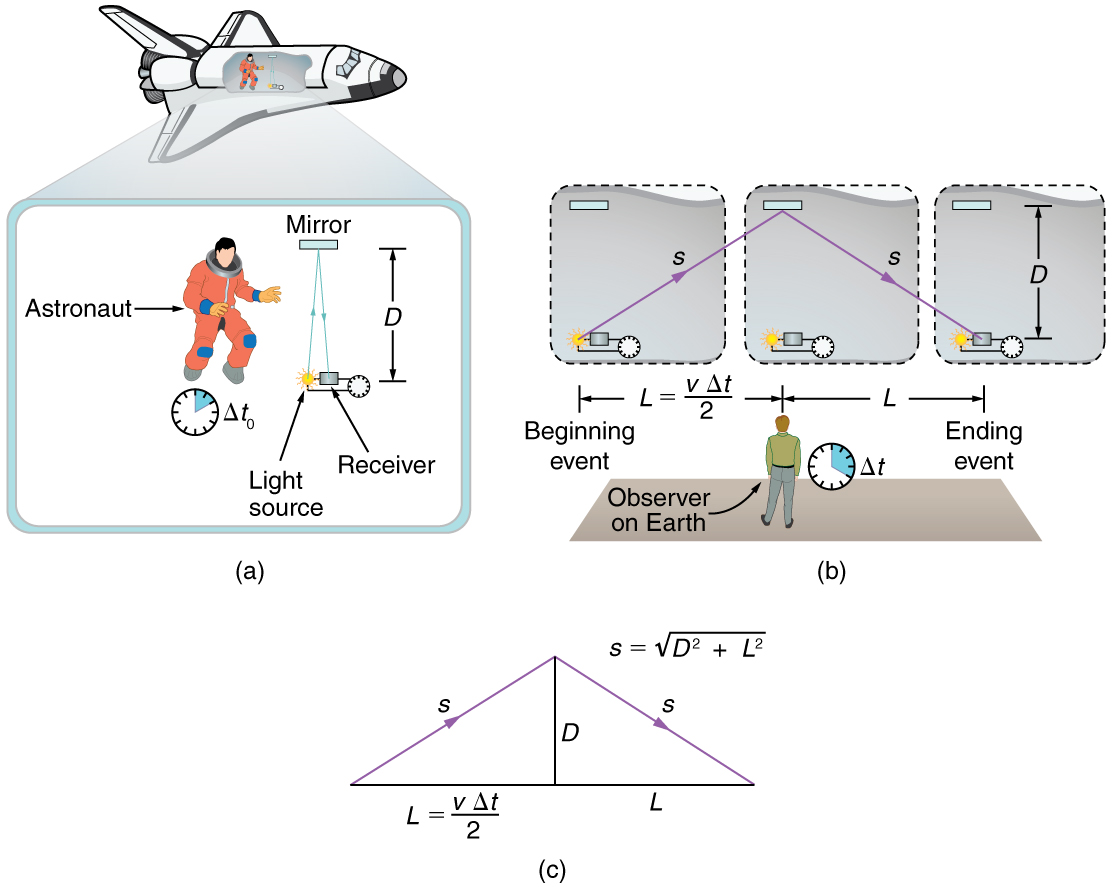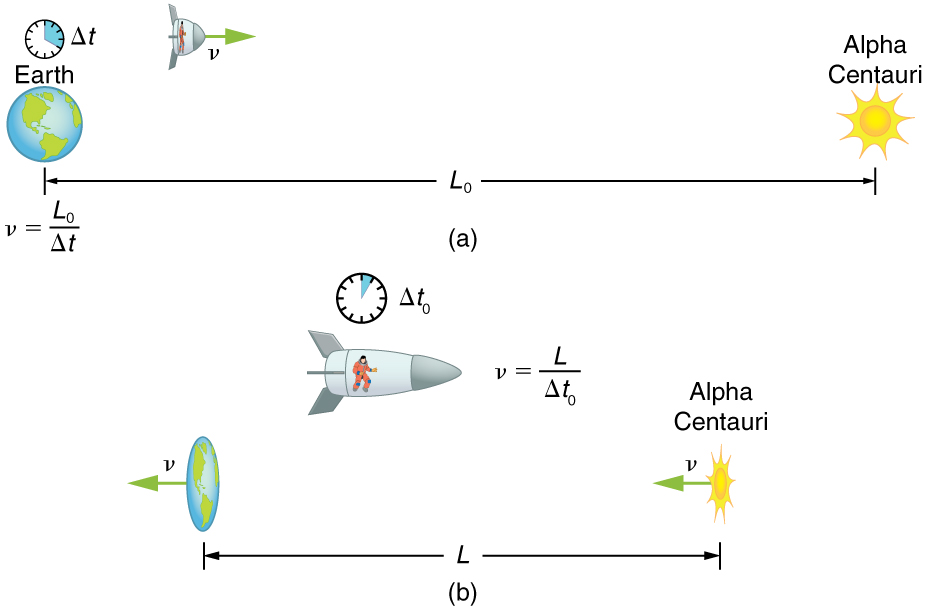Reference Frames
- for event at
- let for moving frame denoted by ’
- then, we can relate stuff like distances () or forces using aka relative motion
- reality is same for both observers, just relatively transformed
Special Relativity Postulates
[!math|{“type”:“axiom”,“number”:“auto”,“setAsNoteMathLink”:false,“_index”:0}] Axiom 1. All inertial frames are equally valid - laws of physics are the same, no preferred frame.
[!math|{“type”:“axiom”,“number”:“auto”,“setAsNoteMathLink”:false,“title”:"",“label”:"",“_index”:1}] Axiom 2. Speed of light is the same in all frames regardless of relative motion of source and observer.
[!math|{“type”:“remark”,“number”:“auto”,“setAsNoteMathLink”:false,“_index”:2}] Remark 3. is the speed at which massless things move - essentially a speed limit of nature. Since we measure events in terms of space and time, is simply a conversion factor between space and time.
Significance
- reference frame from Reference Frames is broken!
- light moves at same speed for both observers; thus, relative motion is broken, realities are different
- indicates how impactful relativity is
Implications
- time dilation
- length contraction
- simultaneity is relative
- intervals: and are “mixed”
- velocity transformation
- kinematics implications ()
Time Dilation

- to the astronaut, the time taken for light to pulse back and forth from the source to the mirror to the receiver is
- to the observer on earth, the light moves at an angle but still at speed ; thus, the time taken for light to pulse is
- time is dilated
Length Contraction

- to stationary observers earth and alpha centauri, time runs slower on the spaceship according to time dilation
- to the observer on the spaceship, length contraction occurs because
Horizontal Light Clock
Imagine a horizontal light clock moving at .
When the light moves forward, clock moves forward:
When light moves backward,
Full trip:
Simultaneity
If you have two clocks moving together at and signal is emitted at center, leading clock lags by